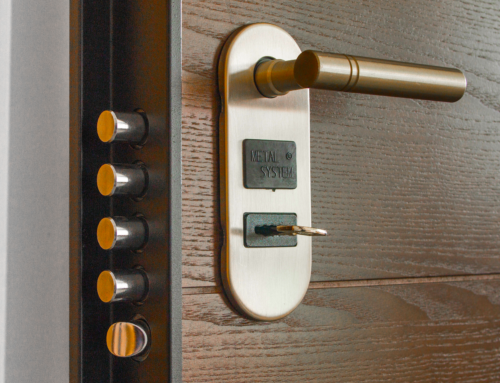Filing for bankruptcy can feel like navigating through a stormy sea. In the car-centric culture of California, the thought of losing your vehicle can be particularly daunting. For many, their vehicle is more than just a mode of transportation; it’s a lifeline to work, family responsibilities, and maintaining a sense of normalcy.
I’m frequently asked, “If I file for bankruptcy, will my car be repossessed?” The response is complex because most people need to protect their vehicle from the lender and the bankruptcy trustee.
Understanding your rights and options is a crucial step in your financial journey, so let’s demystify the process to empower you with the knowledge needed to make informed decisions.
Understanding Bankruptcy, California Style
Though bankruptcy is federal law, California state laws determine the fate of your assets, including vehicles. A clear understanding of these laws is crucial, especially concerning car repossession in bankruptcy cases.
Chapter 7 Bankruptcy involves liquidating non-exempt assets to pay off creditors. Crucially, California offers two sets of bankruptcy exemptions: System 1 (704 series) and System 2 (703 series), each of which may be more useful based on your situation. By far the most common type of bankruptcy, Chapter 7 is typically reserved for people with lower incomes and few assets that cannot be protected under exemption rules.
Chapter 13 Bankruptcy is designed for individuals with regular income, allowing them to repay debts over three to five years. The one significant benefit of Chapter 13 is that it will enable people to keep their assets regardless of value.
Navigating California Bankruptcy Exemptions for Your Car
The choice of California bankruptcy exemptions is critical in determining whether you can keep your car.
- System 1 (704 series): Often chosen by homeowners due to the significant homestead exemption, this system allows for a motor vehicle exemption of up to $7,500 in equity per vehicle (California Code of Civil Procedure Section 704.010).
- System 2 (703 series): This system, often preferred by people without substantial home equity, also offers a motor vehicle exemption of up to $7,500 in equity for your vehicle (California Code of Civil Procedure Section 703.140(b)(2)). In exchange for a lower homestead exemption, this system also includes a ‘wildcard’ exemption of $29,275 that can be applied to any property, including additional equity in a vehicle.
If you file for Chapter 7 bankruptcy and your car’s equity is above the exemption limit, the bankruptcy trustee will present you with the option of paying the non-exempt value for distribution to your creditors or, in the alternative, surrender the vehicle. This problem doesn’t arise in Chapter 13.
It’s essential to thoroughly understand these exemptions and how they can be applied to protect your car in bankruptcy. The choice between the two systems depends on your circumstances and the types of assets you need to protect.
Filing for Bankruptcy Can Prevent Repossession
One of the most immediate benefits of filing for bankruptcy is the automatic stay. This legal provision temporarily halts most creditors’ collection efforts, including car repossession. However, the effectiveness of this stay and your ability to ultimately keep your car depends on the type of bankruptcy you file and your specific circumstances.
If you file a Chapter 7, the automatic stay prevents your car from being repossessed. However, this temporary measure lasts only as long as the case remains open. If you’re behind on your payments, the lender can seek court permission to repossess the vehicle before your case ends.
You also get the protection of the automatic stay in Chapter 13 but can also include any arrears on your car loan in the repayment plan. You might even reduce the loan amount if the car is worth less than what you owe, a process known as a cramdown.
Real-World Examples
To illustrate these points, let’s consider a few hypothetical scenarios:
- Protected Equity: John has a car worth $6,000 and a loan balance of $2,000, which means he has $4,000 in equity in his vehicle. If he files for Chapter 7 bankruptcy, the trustee can’t take his car because he can exempt $4,000 in equity under either exemption system.
- Too Much Equity: Roy has a car worth $16,000 and a loan balance of $2,000, which means he has $14,000 in equity. If he files for Chapter 7 bankruptcy, he can only protect his vehicle from the trustee if he uses System 2. He might also file for Chapter 7 and offer to pay $6,500 to the trustee in exchange for keeping the car or consider Chapter 13 as a way to repay a portion of his debts while retaining ownership of the automobile.
The Fate of Your Car in Bankruptcy Is In Your Hands
Filing for bankruptcy in California doesn’t automatically mean losing your car. The type of bankruptcy you choose, the exemptions you apply, and the strategies you employ can significantly influence the outcome.
While this guide provides a general overview, each situation is unique. If you’re considering bankruptcy, contact me so you can navigate these waters effectively and make informed decisions about your assets.
ABOUT THE AUTHOR
Meet Jay
 Since I became a lawyer in 1995, I’ve represented people with problems involving student loans, consumer debts, mortgage foreclosures, collection abuse, and credit reports. Instead of gatekeeping my knowledge, I make as much of it available at no cost as possible on this site and my other social channels. I wrote every word on this site.
Since I became a lawyer in 1995, I’ve represented people with problems involving student loans, consumer debts, mortgage foreclosures, collection abuse, and credit reports. Instead of gatekeeping my knowledge, I make as much of it available at no cost as possible on this site and my other social channels. I wrote every word on this site.
I’ve helped thousands of federal and private student loan borrowers lower their payments, negotiate settlements, get out of default and qualify for loan forgiveness programs. My practice includes defending student loan lawsuits filed by companies such as Navient and National Collegiate Student Loan Trust. In addition, I’ve represented thousands of individuals and families in Chapter 7 and Chapter 13 bankruptcy cases. I currently focus my law practice solely on student loan issues.
I played a central role in developing the Student Loan Law Workshop, where I helped to train over 350 lawyers on how to help people with student loan problems. I’ve spoken at events held by the National Association of Consumer Bankruptcy Attorneys, National Association of Consumer Advocates, and bar associations around the country. National news outlets regularly look to me for my insights on student loans and consumer debt issues.
I’m licensed to practice law in New York and California and advise federal student loan borrowers nationwide.
continue reading




